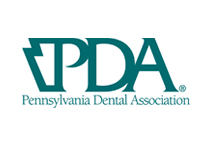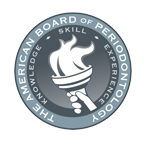
Introduction
As the leaves change and the air turns crisp, fall brings about a season of change. While you prepare your wardrobe for cooler weather and enjoy pumpkin-flavored treats, it’s also essential to shift your focus to maintaining your oral health. Fall dental care is not just about brushing and flossing; it’s about adapting your routine to the seasonal changes that can impact your teeth and gums. In this blog post, we’ll explore key strategies to keep your smile healthy and bright throughout the fall season.
Summary
1. The Impact of Cooler Weather on Your Teeth
2. Adjust Your Diet for Fall Dental Health
3. Don’t Forget Your Fall Dental Checkup
4. Protect Your Teeth During Fall Sports
5. Combat Dry Mouth with Hydration and Humidity
6. Fall Into a Routine: Establishing Good Habits
7. Preparing for the Holiday Season: Plan Ahead
1. The Impact of Cooler Weather on Your Teeth

As the temperatures drop, your teeth may become more sensitive to cold air. This sensitivity can make everyday activities like eating or drinking uncomfortable.
During fall, the cold weather can cause your teeth to contract slightly, which may lead to small cracks in the enamel. These tiny cracks expose the sensitive dentin layer beneath, leading to increased sensitivity. To combat this, use a toothpaste designed for sensitive teeth and avoid exposing your teeth to extreme temperatures.Moreover, staying hydrated is crucial during the cooler months. The cold air can dry out your mouth, reducing saliva production, which is vital for neutralizing acids and washing away food particles. Make sure to drink plenty of water to keep your mouth moist and healthy.
2. Adjust Your Diet for Fall Dental Health

Fall is a season of comfort foods and sweet treats, but it’s important to be mindful of how these foods affect your dental health.
Pumpkin pies, caramel apples, and hot chocolate are fall favorites, but they’re often loaded with sugar. Excessive sugar can lead to cavities and tooth decay. Instead, opt for healthier alternatives like apples, nuts, and cheese, which are not only delicious but also good for your teeth.
Additionally, incorporating seasonal fruits and vegetables like pears, squash, and sweet potatoes into your diet can provide essential vitamins and minerals that support oral health. These foods are rich in fiber, which helps clean your teeth as you eat, and they also stimulate saliva production, which is your mouth’s natural defense against decay
3. Don’t Forget Your Fall Dental Checkup

Fall is the perfect time to schedule your dental checkup. Regular visits to the dentist are crucial for maintaining oral health, and fall provides a timely reminder as the year winds down.
During your fall dental checkup, your dentist can identify any issues that may have developed over the summer, such as cavities or gum disease. Catching issues early on is crucial to avoiding bigger problems later. Your dentist can also provide a professional cleaning to remove any plaque buildup that brushing and flossing alone can’t tackle.
In addition to cleaning, your dentist may suggest a fluoride treatment to strengthen your teeth and protect them from decay. Fluoride helps remineralize enamel, making it more resistant to acid attacks from food and drinks.
4. Protect Your Teeth During Fall Sports

Fall is a popular time for outdoor sports like football, soccer, and hiking. While these activities are great for your overall health, they can pose risks to your teeth.
Wearing a mouthguard is essential if you’re participating in contact sports. Mouthguards protect your teeth from being chipped, cracked, or knocked out. They also safeguard your lips, tongue, and jaw from injury. Custom-fitted mouthguards, which can be provided by your dentist, offer the best protection and comfort.
For those who enjoy non-contact sports, such as running or cycling, staying hydrated is key. Not drinking enough water can cause a dry mouth, which raises the chance of getting cavities. Carry a water bottle with you and take sips frequently to keep your mouth hydrated.
5. Combat Dry Mouth with Hydration and Humidity

As the air becomes drier in the fall, many people experience dry mouth, which can increase the risk of cavities and bad breath.
A simple way to fight dry mouth is to drink more water. Drinking plenty of water helps to wash away food particles and bacteria that can cause tooth decay. You can also try using a humidifier at home to add moisture to the air. This can help prevent your mouth from becoming too dry, especially while you sleep.
Chewing sugar-free gum is another effective way to stimulate saliva production. Saliva is your body’s natural defense against cavities, as it neutralizes acids and helps remineralize your teeth. Choose gum with xylitol, a natural sweetener that has been shown to reduce the risk of tooth decay.
6. Fall Into a Routine: Establishing Good Habits

With the change in season, it’s a good time to reassess your oral hygiene routine. Consistency is key to maintaining healthy teeth and gums. Fluoride makes your enamel stronger and helps protect against cavities. Don’t forget to brush your tongue, as it can harbor bacteria that lead to bad breath.
Flossing is just as important as brushing. It removes plaque and food particles from between your teeth and along the gum line, areas that your toothbrush can’t reach. Make it a habit to floss daily, ideally before bed, to keep your mouth clean overnight.
Finally, consider using an antimicrobial mouthwash as part of your routine. Mouthwash can help cut down plaque, prevent gum disease, and freshen your breath. Choose one with fluoride for extra protection.
7. Preparing for the Holiday Season: Plan Ahead

Fall leads right into the holiday season, a time filled with parties, gatherings, and plenty of sweets. Planning ahead can help you enjoy the festivities without compromising your oral health.
Before the holiday rush begins, stock up on dental care essentials like toothpaste, floss, and mouthwash. This ensures that you won’t run out of supplies when you need them most. Additionally, if you anticipate indulging in more sweets than usual, be extra diligent about your oral hygiene routine.
Another tip is to keep sugar-free gum or a toothbrush handy when you’re out and about. If you can’t brush your teeth after a meal, chewing sugar-free gum can help clean your teeth and freshen your breath until you get home.
Lastly, don’t forget to stay on top of your regular dental appointments. If you haven’t scheduled your fall dental checkup yet, now is the time to do so. Maintaining your dental health during the fall will help you start the new year with a bright and healthy smile.
FAQs
Q.1. Why do my teeth hurt more in cold weather?
A.1. Cold weather can cause your teeth to contract, leading to increased sensitivity, especially if you have cracks in your enamel or exposed dentin.
Q.2. What are the best foods for fall dental health?
A.2. Foods rich in fiber, like apples and sweet potatoes, are great for your teeth. They help clean your teeth and promote saliva production.
Q.3. How can I prevent dry mouth in the fall?
A.3. Stay hydrated by drinking plenty of water, use a humidifier at home, and chew sugar-free gum to stimulate saliva production.
Q.4. Do I need to wear a mouthguard for non-contact sports?
A.4. While mouthguards are essential for contact sports, they aren’t necessary for non-contact activities. However, staying hydrated during these activities is crucial for dental health.
Q.5. When should I schedule my fall dental checkup?
A.5. It’s best to schedule your dental checkup at the beginning of fall. This allows your dentist to address any summer-related issues and prepare your teeth for the colder months.
Conclusion
Fall is a beautiful season filled with change and preparation. By taking proactive steps in your fall dental care routine, you can ensure that your smile remains healthy and vibrant as you transition into the colder months. Remember, small adjustments to your diet, hydration, and oral hygiene habits can make a significant difference in your overall dental health. Schedule your fall dental checkup today, and embrace the season with confidence, knowing your teeth are well-protected









